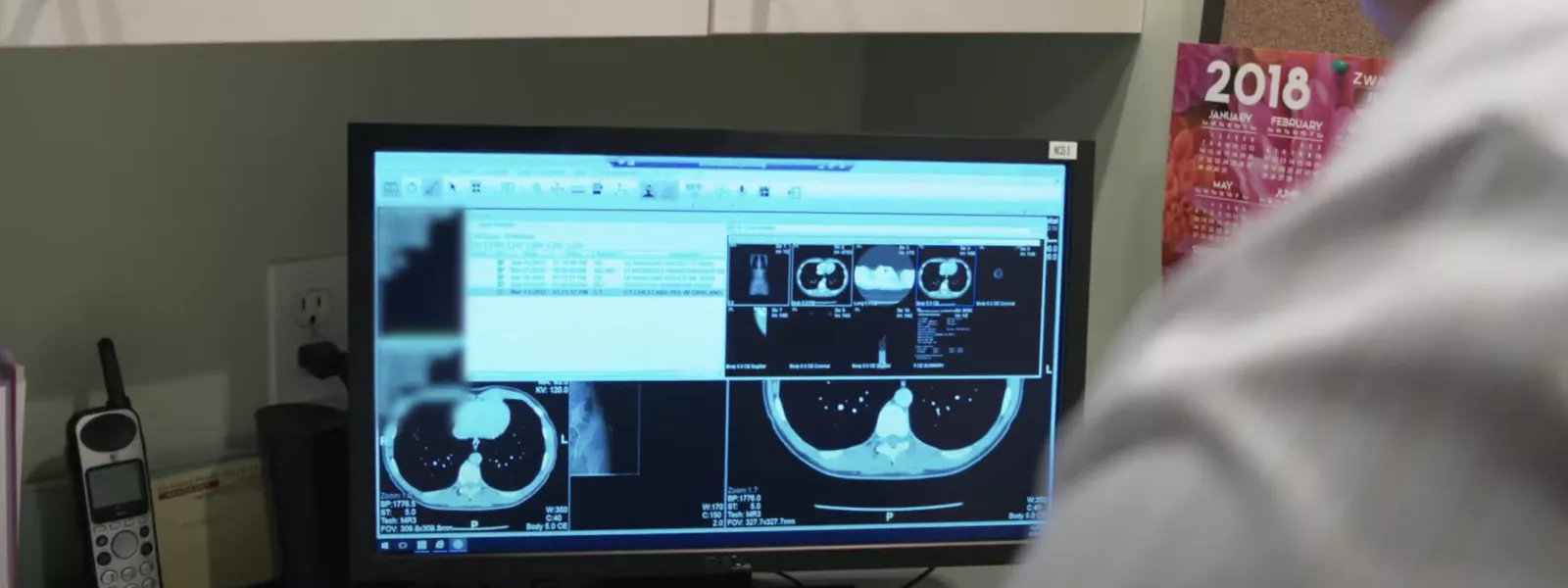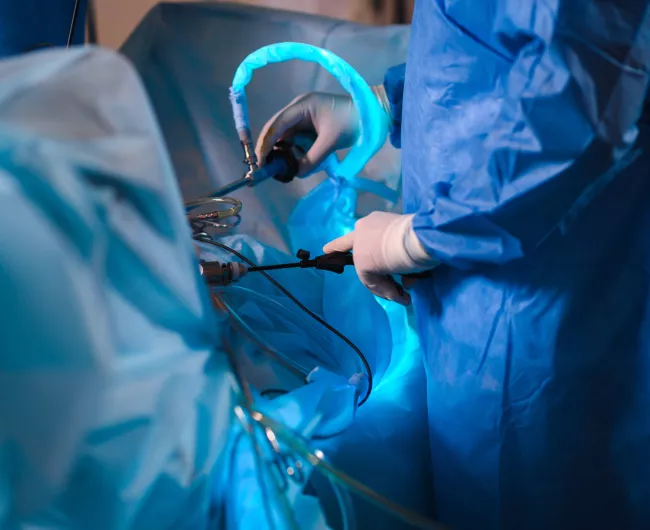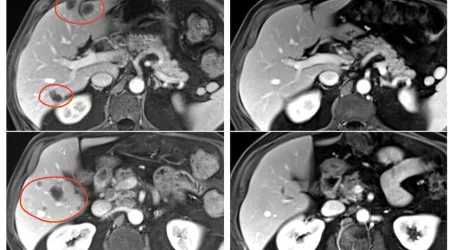Laparoscopic surgery for colorectal cancer
When compared to traditional open surgery, the recovery from a laparoscopic colectomy can be shorter and less uncomfortable.
What is laparoscopic surgery?
Laparoscopic surgery is a type of minimally invasive surgery. Instead of one large incision, the surgeon makes a few very small incisions (about ¼ to ½ inch) into the abdomen to insert a small surgical camera and instruments. A slightly bigger incision, about two inches wide, is made to remove the tumor and any other tissue.


Why have laparoscopic surgery?
Advantages to laparoscopic surgery versus open procedures include:
- Less recovery time
- Lower risk of infection
- Smaller scars
- Less pain and discomfort after surgery
- Shorter hospital stay
Speedier return to normal activities
Who is eligible for a laparoscopic colectomy?
Many colorectal cancer patients are good candidates for laparoscopic colectomy surgery.
The best option for you depends on several factors, including:
- your overall health
- your medical history
- your surgeon’s experience
- the cancer stage
- the cancer location
What happens during a laparoscopic surgery?
- Carbon dioxide gas is used to inflate the abdomen and create space for the surgeon to operate.
- The laparoscope (a small camera) sends video images from inside the body to monitors in the operating room.
- During the procedure, the surgeon moves the instruments by watching the monitors.
- The surgeon will remove the segment of the colon or rectum that contains the tumor through the larger incision.
Brittany's story: open versus laparoscopic surgery for colorectal cancer
This short video tells the story of Colorado resident Brittany Slater, whose life was turned upside-down by a colon cancer diagnosis at age 23. Her tale demonstrates the differences between an open procedure and a laparoscopic surgery.

Up Next
More about surgery optionsTop resources

"Clinical trials gave us time": A daughter’s tribute to her mother’s courage
When Kate Shin’s mother faced rectal cancer, clinical trials gave them precious time together. Now, Kate shares her story to encourage access to screening and innovative care, including clinical trials.

2025 ASCO update: Six big studies
The 2025 ASCO Annual Meeting featured several important studies that could change how colorectal cancer is treated, including a pivotal study for BRAF V600E patients.

NIH: Combination immunotherapy shrank GI cancers
A new kind of tumor infiltrating lymphocyte (TIL) therapy improved the treatment’s effectiveness in patients with metastatic GI cancers.





